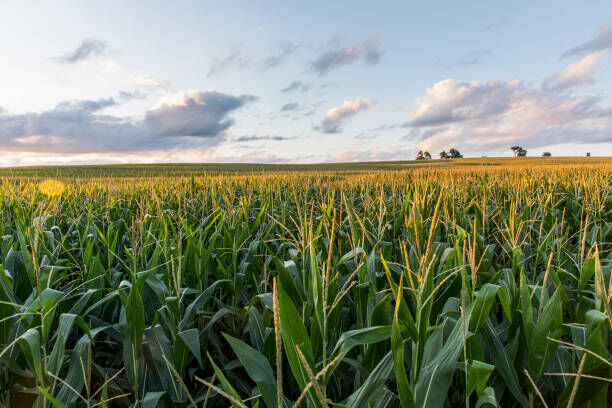Iowa State researchers contribute to nationwide organic corn study
December 15, 2021
An Iowa State research team is working on developing new genetic lines to improve the efficiency and genetics in organic corn production.
Thomas Lübberstedt, who holds a doctorate in biology and is K.J. Frey Chair in Agronomy at Iowa State, Paul Scott, assistant professor in the agronomy department and researcher for the USDA and a handful of both undergraduate and graduate students have joined together in a multi-institutional project called the U.S. Department of Agriculture Organic Agricultural Research and Extension Initiative (OREI) to develop new and improved seed varieties that are suited for organic agriculture.
The project began in late 2017 and has made enormous strides since. They hope that they can make their research free for anyone to use.
Two of the goals with their new lines of corn seed is to create seeds that have resistances to viruses and a natural ability to resist pollination by transgenic corn. This is important because, for corn to be organic, it must meet a certain threshold of contamination by transgenes.
“There are different thresholds for different markets,” Scott said. “So, it’s a costly thing, because you could have a large load of grain that gets rejected at the last selling point since it has GMO contamination.”
Bottom line, the research team is trying to deploy new technologies to help organic farmers because large corn companies develop products that organic farmers can’t use to maintain and grow their crops.
The team is also allowing organic farmers to use their new seeds in their fields. These farmers offer valuable feedback for the scientists about what works well or what needs to be improved upon.
To test the seeds initially, the research team would give a couple of pounds of seed to the organic farmers where they will then do a strip trial. This kind of testing offers the scientists an idea of where to improve with their seeds in the future. However, this scale of testing is quite small.
“Once [we] find something more interesting, the scaling-up process is ultimately what you would need to supply the farm scale,” Lübberstedt said. “It’s really not something that we are routinely doing and that’s a major issue.”
The researchers will eventually need to take the leap into large-scale production which could impact how their seeds grow.
Scott explained how organic agriculture is the future, as its market is becoming a huge business sector within the U.S. economy.
“There’s something like $20 billion of corn produced each year in the U.S. and if we can make a new variety that just has a 1% higher yield, for example, then that adds, what is that $200 million to the U.S. economy?,” Scott said.
This is a huge business prospect and can make an enormous impact on the future of the U.S. economy. The research team has stakeholder meetings occasionally to discuss their research. These researchers are enabled to do their impactful work, thanks to funding from the USDA National Institute of Food and Agriculture.
More information can be found on the Iowa State Department of Agronomy’s website at https://www.agron.iastate.edu/projects/usda-orei-aces
















